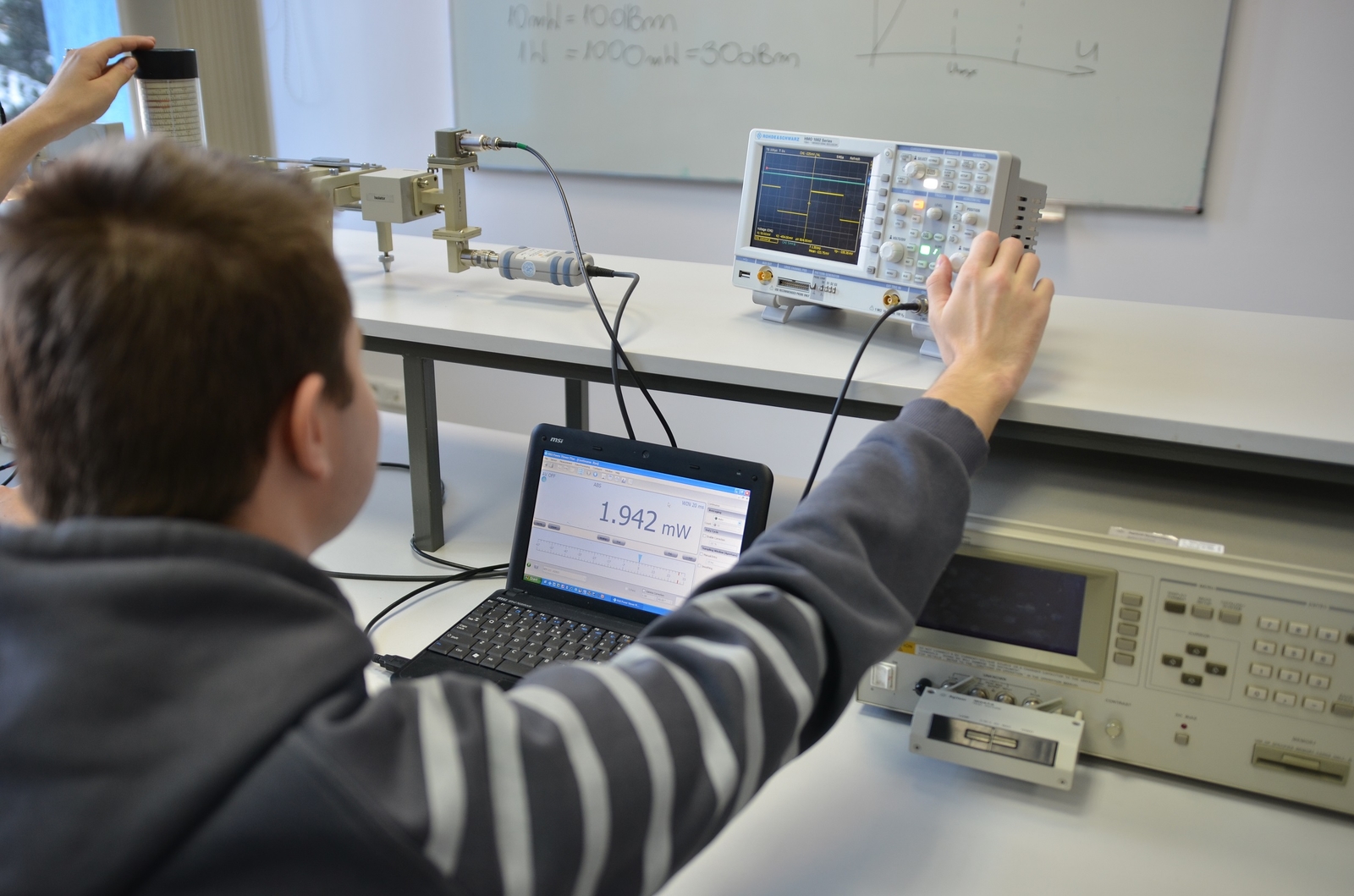First-degree studies

pic. A. Surowiec
Engineering studies, first degree, 3.5-year stationary and non-stationary (extramural), academic profile.
Graduating of electronics and telecommunications will give you the knowledge and skills needed in all departments requiring highly qualified engineering staff, familiar with new techniques and technologies.
Electronics and telecommunications graduates can find employment in designing, production, operation and service of modern electronic devices, wired and wireless telecommunications systems, measurement and diagnostic systems, in quality control laboratories, in the supervision of technological processes, in health care, in environmental protection and in secondary vocational education.
As a graduate in electronics and telecommunications, you will gain knowledge and skills in the field of construction, design, manufacturing, operation, testing and servicing of analog and digital systems, electronic devices as well as measurement, diagnostic and telecommunications systems. You will gain the ability to perform measurements and use computer programs and systems in engineering practice.
- Electronic measurement and diagnostic systems
- Telecommunication
- Electronic devices
Certainly, by completing your first-cycle studies in electronics and telecommunications, you will be an engineer with general education and technical knowledge, skills and habits that will facilitate your further development of qualifications in this field. You will use a specialized language in the field of electronics and telecommunications and related fields. You will acquire knowledge and skills in the selection and use of control and measurement equipment, you will learn about the issues of radiocommunication. You will gain experience in using IT techniques and you will come across many interesting engineering issues that are widely used in the modern world in the field of socio-economic activity.
To see more info check: study plans.
Second-degree studies
Master's degree studies, second degree, 1.5-year stationary and non-stationary (extramural), academic profile.
Second degree studies in electronics and telecommunications will give you extended knowledge and skills in the field of electronics and telecommunications. You will learn about development trends and the most important new developments in electronics and telecommunications (nanotechnology).
You will be able to skilfully select and use modern programming environments and research methods to design advanced electronic and telecommunications devices or systems. You will be able to use properly selected research methods as well as programming environments that enable the design, software and development of advanced electronic and telecommunication devices and systems.
Second degree studies will give you the opportunity to participate in research, development and implementation in the field of electronics and telecommunications, in the study of phenomena related to electromagnetic compatibility, analog and digital electronic systems, and signal processing. You will also be prepared to implement new technologies and design innovative devices and complex systems. Thanks to these skills, you will find employment in research and development companies. The second degree studies will bring you closer to managerial positions in the electronics and telecommunications departments of many companies.
To see more info check: study plans.



